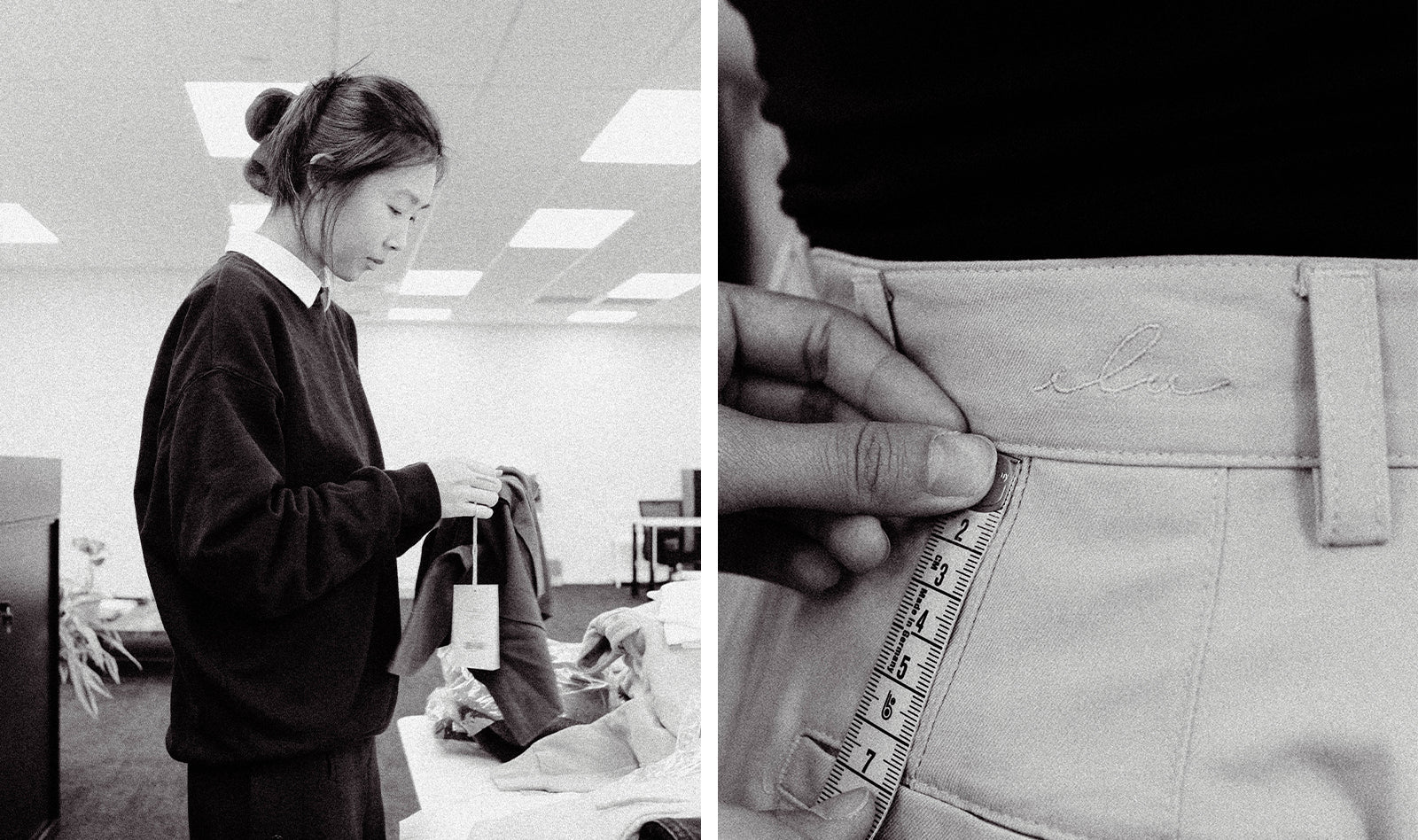As the founder of I Love Ugly, I thought it would be a good idea to give you some context as to why we decided to branch into womenswear. For the very early followers of the brand, you will know that once upon a time; we had an attempt at womenswear for a season or 2. However, due to the complexities of it and also with the growth of menswear, I decided to keep things simple, focus on my strengths, and park the idea for a while.
Twelve years later, we have decided to revisit it. Those who have been watching for the last 18 months can see we have slowly started incorporating female models into our campaigns dressed in menswear to gauge how receptive our audience would be.
To our surprise, we had nothing but positive feedback. We felt it was time to broaden our horizons as the demand for us to produce womenswear was only increasing. We could also see the same gap missing in the female market, which we were filling in the menswear market, so we enthusiastically took the leap.
I Love Ugly is a mindset and a way of living. We believe our design DNA and principles can translate to many other markets and product categories. This has been my vision since day one. With this in mind, we felt ready to expand our horizons and finally delve into womenswear properly.
I sat down with our womenswear designer, Amanda, and asked her a bunch of questions about the entire journey; from when the decision was made to begin womenswear, to her influences, challenges, and aspirations when conceptualising and executing this new era for I Love Ugly.
Enjoy the interview.
V = Valentin Ozich (Creative Director & Founder of I Love Ugly)
A = Amanda (Womenswear Designer at I Love Ugly)
V: Tell us about your background & previous experience in fashion.
A: I guess you could say my journey began with the completion of my Architecture Degree back in 2008, but I later changed direction to pursue fashion. In 2015 I moved from Melbourne to New York City, to assist in opening a new Acne Studios store. Working in retail built my drive to have a wider understanding of a brand/business. This impacts my design process, as clothing doesn't exist in a bubble; it feeds back from the customer and intertwines throughout the entire business. I then moved on to Area NYC, then Public School NYC, until ending up in London in 2017. Working in London at Net-a-Porter/Mr Porter, I learned a lot from handling the physical product by such a wide variety of brands. From sports labels like Nike, to high-end designer clothing such as FOG (Fear of God) and Jacquemus — even luxury brands like Balenciaga & Gucci. In 2020, I was offered a job with the product design team at Supreme. I was looking forward to learning from such a streetwear giant — but thanks to the Covid-19 pandemic, I was ultimately unable to extend my working Visa, which brought me back to New Zealand.
Funny story — I was actually rejected for the position at ILU initially, however I used the principles written in V’s Article; ‘How to Land Your Dream Job,’ to try again. I believe this showed my determination, and eventually led me to become successful in landing the role. It’s interesting how much I have been able to leverage my experience and all the skills I have picked up along my journey to thrive at I Love Ugly.


Leave a comment
This site is protected by hCaptcha and the hCaptcha Privacy Policy and Terms of Service apply.